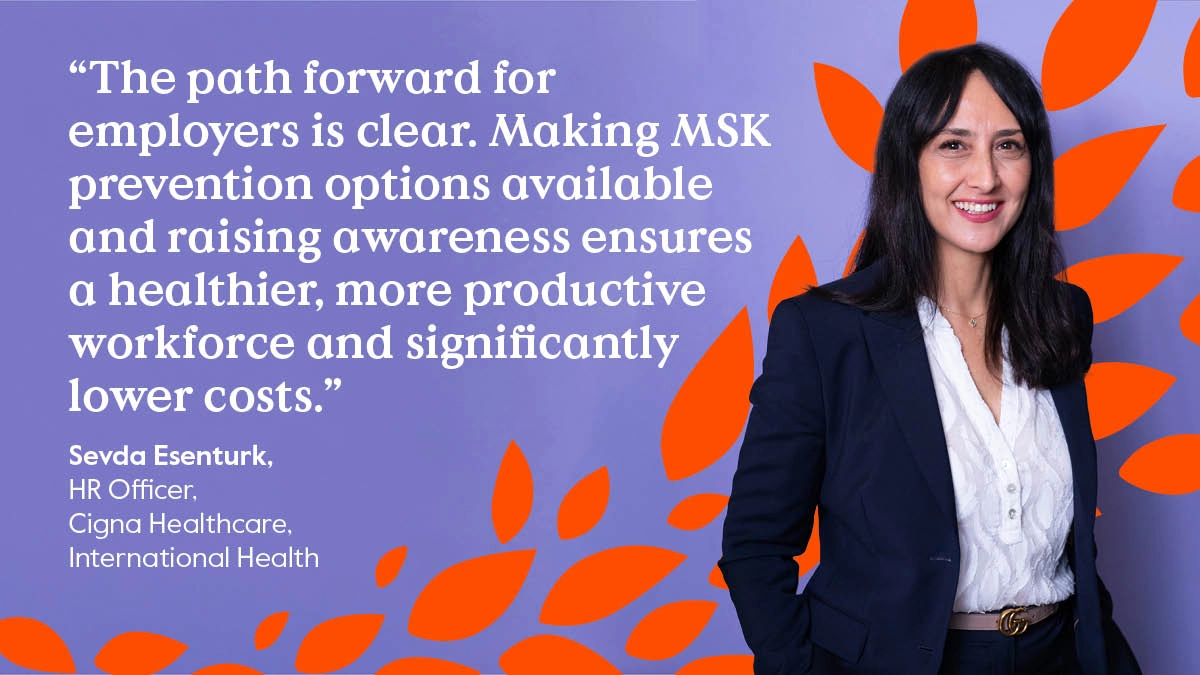- For Providers
- For Brokers
Individuals & Families
- Global Individual Health
- Spanish Domestic Individuals
Employers
- SME Employer Health
- Large Corporation Health
- Spanish Domestic Employers
IGO/NGO
- IGO/NGO Health
Individuals & Families
Top Destinations We Cover
Expat Health Insurance
- Inside Expat Health Hub
- Retiree guide to International health Insurance
- A guide to International health Insurance for working abroad
- Expat Health Insurance Explained
- Student guide to International health Insurance
- Moving abroad while pregnant
Choosing Health Insurance
- Travel Insurance vs International Health Insurance
- Choosing Health Insurance
Country Guides
- Country Guides
FAQ
- Frequently Asked Questions
Employers
Member resources
- Useful Documents & Information
- U.S Prescription Drug List
Client
- Employer Log In
IGO/NGO & Government
Government Officials
- Government Officials
Client
- Employer Log In
Topics
Individuals & Families
-
Types of Cover
-
Where We Cover
-
Resources
- Inside Expat Health Hub
- Retiree guide to International health Insurance
- A guide to International health Insurance for working abroad
- Expat Health Insurance Explained
- Student guide to International health Insurance
- Moving abroad while pregnant
- Travel Insurance vs International Health Insurance
- Choosing Health Insurance
- Country Guides
- Frequently Asked Questions
-
For Members
Employers
-
Employers
-
For Members
IGO/NGO & Government
Health Blog
For Brokers
Protecting Your Workforce - a Guide to Understanding and Preventing Musculoskeletal Problems
Protecting Your Workforce - a Guide to Understanding and Preventing Musculoskeletal Problems
Musculoskeletal (MSK) conditions are on the rise, but new data shows that with proactive care, prevention is possible. Here’s how employers can help their workforce stay mobile, healthy, and productive.
More than 1.7 billion people worldwide are living with musculoskeletal (MSK) conditions, according to the World Health Organization[1]. These include back pain, arthritis, sprains, joint disorders, and posture-related issues. Musculoskeletal disorders and injuries are now a leading cause of non-deadly disability globally[2].
The impact of MSK problems extends far beyond physical discomfort. In the US, these conditions cost the healthcare system an estimated $980 billion annually, or 5.8% of GDP, more than any other chronic condition[3]. In the UK, MSK issues account for 30% of all GP consultations, contributing to 30 million working days lost each year[4].
But while the scale of the problem is clear, new analysis from Cigna Healthcare offers hope: individuals are increasingly taking steps to protect their movement health before more serious interventions like surgery become necessary. Employers have a critical role to play in driving this shift.
Why Movement Health Matters at Work
The musculoskeletal system, made up of bones, joints, muscles, tendons, and ligaments, is what enables us to move, sit, stand, and work. When that system is impaired, employees can experience reduced mobility, chronic pain, and long-term disability.
These issues don’t just affect those in manual labour roles. Whether your workforce is office-based, hybrid, remote, or on the move, MSK conditions can impact employees of all backgrounds and job functions.
For employers, poor movement health among employees can result in:
- Increased sick leave
- Higher medical costs
- Reduced productivity
- Early retirement due to disability
That’s why prevention-focused strategies are gaining traction across leading organisations, and encouragingly, they’re working.
Positive Signs: Outpatient Care on the Rise
Over the past five years, Cigna Healthcare has seen a compound annual growth rate of 6.8% in benefits related to MSK care[5]. Yet overall procedures are decreasing, as more people seek outpatient care such as physiotherapy and early intervention rather than waiting until surgical intervention is required.
“The trend looks positive,” says Cormac Mackle, Senior Actuarial Manager at Cigna Healthcare. “We’re seeing reduced overall costs for MSK treatment due to less inpatient care. And the increase in outpatient services tells us people are seeking help earlier. The message about movement health is landing.”
This shift is a clear indicator that when employers provide accessible preventive care, employees respond and therefore benefit.
The Role of Employers in MSK Prevention
One of the most effective ways to combat the growing burden of MSK conditions is through early identification and intervention. That’s where employers come in.
Providing access to physiotherapy, ergonomic assessments, and movement health tools can help employees address pain before it becomes chronic. Over time, this not only supports physical health but also reduces long-term costs and improves workforce resilience.

“The path forward for employers is clear,” says Sevda Esenturk, HR Officer at Cigna Healthcare, International Health. “Making MSK prevention options available and raising awareness ensures a healthier, more productive workforce and significantly lower costs.
“We’re seeing real improvements,” she continues, “in terms of employee absence, medical claims, and overall culture. MSK preparedness is increasingly viewed as part of the employee value proposition and it matters to today’s workforce.”
Introducing Flex-ray: Personalised Support for MSK Health
As part of its strategy to improve movement health across populations, Cigna Healthcare has launched Flex-Ray, a digital tool that helps individuals assess and enhance their musculoskeletal well-being. It provides tailored recommendations for movement health improvement, based on user results, from the comfort of home.
Using AI-driven technology, Flex-ray tracks and analyses movement patterns, guiding users through a series of stretches and exercises to evaluate their balance, mobility, posture, and stability. The tool then assigns a ‘movement age’ and offers a personalised exercise plan to help improve performance in key areas.
These routines are designed to boost awareness and capability, rather than diagnose or treat specific conditions, but they play a vital role in early prevention and education.
By helping employees become more aware of their physical health and how to improve it, tools like Flex-ray empower individuals to take action before problems become permanent.
Why Early Action Matters
MSK conditions don’t just happen overnight. They develop gradually through poor posture, sedentary behaviour, repetitive strain, or unresolved injury.
But once surgery is needed, the cost to individuals and organisations rises significantly. Inpatient MSK procedures are becoming more expensive every year, driven by increasing demand, tech costs, and limited hospital capacity.
That’s why preventive care, especially when initiated early, delivers such strong returns. It saves time, money, and most importantly, it improves lives.
Actionable Tips for Employers
Employers can, and should, play a pivotal role in improving movement health across their workforce. Here are three practical ways to start:
- Offer MSK support as part of your benefits package
Include services like physiotherapy, targeted training programmes, and ergonomic assessments. Encourage usage through flexible policies and clear communication. - Raise awareness among employees and families
Help your workforce understand how common MSK issues are, and how early intervention can prevent long-term complications. Include this information in wellness campaigns and onboarding materials. - Invest in Ergonomic Workspaces
Offer ergonomic assessments for all employees, regardless of where they are working. This includes those working from home, and those in offices. Provide adjustable chairs, standing desks, and other equipment.
A Healthier Future Starts with Movement
Musculoskeletal health is often overlooked, but it's central to quality of life, productivity, and long-term well-being. For employers, investing in proactive MSK care isn’t just the right thing to do, it’s a smart business decision.
By encouraging awareness, providing tools like Flex-ray, and offering practical benefits that support movement health, organisations can build a workforce that’s not only healthier, but more engaged, resilient, and ready for the future.
Sources
[1] ‘Musculoskeletal health.’ World Health Organisation. https://www.who.int/news-room/fact-sheets/detail/musculoskeletal-conditions
[2] ‘From Pain to Progress: Comprehensive Analysis of Musculoskeletal Disorders Worldwide.’ Zhou et. al. https://pmc.ncbi.nlm.nih.gov/articles/PMC11514690/
[3] ‘Musculoskeletal health: an ecological study assessing disease burden and research funding.’ Nguyen et. al. https://pmc.ncbi.nlm.nih.gov/articles/PMC10788788/
[4] ‘Musculoskeletal health’. NHS England. https://www.england.nhs.uk/elective-care/best-practice-solutions/musculoskeletal/#:~:text=In%20fact%2C%20over%2030%20million,years%20spent%20in%20ill%20health
[5] Data from Cigna Healthcare internal analysis as of July 2024.
Related articles
©Cigna 2025
This article serves only as a reference and is intended for informational purposes only. Nothing in this article constitutes legal, tax, financial planning, health or medical advice including diagnosis or treatment. Any reference to products or services offered by Cigna are available except where prohibited by applicable law and subject to terms and conditions.
Contact Us
Whether you wish to speak to our sales team or get general help if you are already a Cigna Healthcare® member, we’ll get you to the right information.
Contact InformationPopular Links
Resources
© Cigna Healthcare. All rights reserved.
*Please note, this is a representation of the benefits available and does not contain the terms, conditions, and exclusions specific to each benefit. The benefits may be subject to change. Some benefits may be part of an optional module. Please see the Customer Guide for full details.
This website is provided by Cigna European Services (UK) Limited, a company incorporated in England and Wales having its registered address at 13th Floor, 5 Aldermanbury Square, London EC2V 7HR and registered number 00199739. The Cigna Healthcare name, logo and other Cigna Healthcare marks are owned by Cigna Intellectual Property, Inc., licensed for use by The Cigna Group and its operating subsidiaries.
Our Policies are underwritten by Cigna Global Insurance Company Limited, a private limited company under Guernsey Law, with registered address office at PO Box 155, Mill Court, La Charroterie, St Peter Port, Guernsey, GY1 4ET, and company number 41925. Cigna Global Insurance Company Limited is authorised and regulated by the Guernsey Financial Services Commission for the conduct of insurance business in Guernsey.
This communication is being issued and/or distributed by Cigna Insurance Management Services (DIFC) Limited which is regulated by the Dubai Financial Services Authority.
Selecting these links will take you away from Cignaglobal.com. Cigna Healthcare does not control the linked sites' content or links.


